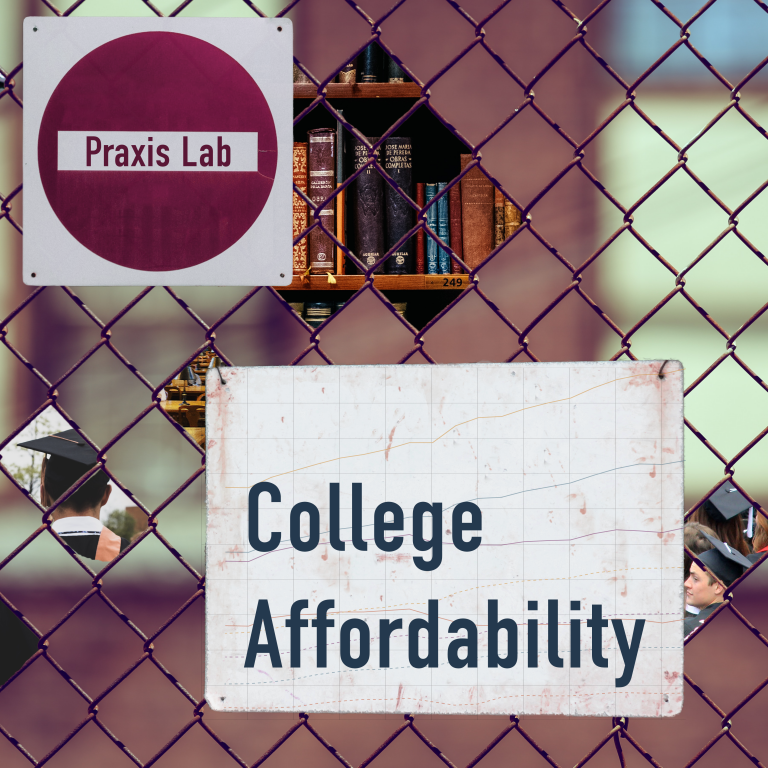
Course Description:
The costs of college have soared over the past two decades. Tuition has increased nearly 200% and living costs and other educational expenses have increased even more dramatically. The result is that students and families are paying the price for college and accumulating billions of dollars in student debt along the way. College is becoming unaffordable and the rate at which students attend and complete college continues to be stratified by income and race.
How did we get here and is our current system and infrastructure of financing college working? What is causing college costs to increase and how can we make college more affordable, accessible, and equitable for the next generation of Americans? Is the answer “free” college, expanding state investments, public debt forgiveness, increasing private investment, reforming federal financial aid, making colleges more efficient, reducing inflated administrative salaries, delivering more online education, or something else? What are our most promising solutions and who will they impact?

The current trajectory of financing college is unsustainable. This praxis lab will explore the terrain of postsecondary education financing and financial aid policies, and it will interrogate the causes and the consequences of the college affordability crisis. The lab will offer students an opportunity to explore and assess college affordability and help us all reimagine and redesign sustainable solutions.
Final Report:_College Affordability
Instructors:
- Asst. Prof. Jason Taylor (PhD), Department of Educational Leadership and Policy, University of Utah
- Dr. Julie Hartley(PhD), Interim Associate Commissioner of Academic and Student Affairs at the Utah System of Higher Education (USHE)
Faculty Biographies
 Dr. Jason Taylor is an Assistant Professor of Higher Education in the Department of Educational Leadership and Policy at the University of Utah. His research examines how community college and higher education public policies influence and address educational and social inequality. He uses quantitative and mixed methodologies to study policies and issues such as college affordability and free college programs, college readiness, adult pathways to college, dual credit/enrollment and early college experiences, transfer policy and reverse transfer, LGBTQ students, and educational access and equity. Each spring he teaches a graduate-level course on higher education finance in the College of Education. Dr. Taylor received his Ph.D. from the University of Illinois at Urbana-Champaign in Education Policy, Organization, and Leadership.
Dr. Jason Taylor is an Assistant Professor of Higher Education in the Department of Educational Leadership and Policy at the University of Utah. His research examines how community college and higher education public policies influence and address educational and social inequality. He uses quantitative and mixed methodologies to study policies and issues such as college affordability and free college programs, college readiness, adult pathways to college, dual credit/enrollment and early college experiences, transfer policy and reverse transfer, LGBTQ students, and educational access and equity. Each spring he teaches a graduate-level course on higher education finance in the College of Education. Dr. Taylor received his Ph.D. from the University of Illinois at Urbana-Champaign in Education Policy, Organization, and Leadership.
 Dr. Julie Hartley-Moore is Interim Associate Commissioner of Academic and Student Affairs at the Utah System of Higher Education, which coordinates the public colleges and universities in Utah. Prior to joining USHE, she was a faculty member, dean, and then a campus director at various institutions in Utah, Illinois, and Michigan. She has bachelor’s degrees in anthropology and French and a master’s degree in American Studies/Folklore. Her Ph.D. is in anthropology from Columbia University. Dr. Hartley-Moore currently oversees Utah’s academic programs, transfer, and USHE’s student success, college completion, and equity and inclusion initiatives.
Dr. Julie Hartley-Moore is Interim Associate Commissioner of Academic and Student Affairs at the Utah System of Higher Education, which coordinates the public colleges and universities in Utah. Prior to joining USHE, she was a faculty member, dean, and then a campus director at various institutions in Utah, Illinois, and Michigan. She has bachelor’s degrees in anthropology and French and a master’s degree in American Studies/Folklore. Her Ph.D. is in anthropology from Columbia University. Dr. Hartley-Moore currently oversees Utah’s academic programs, transfer, and USHE’s student success, college completion, and equity and inclusion initiatives.
